Amalgam Armamentarium
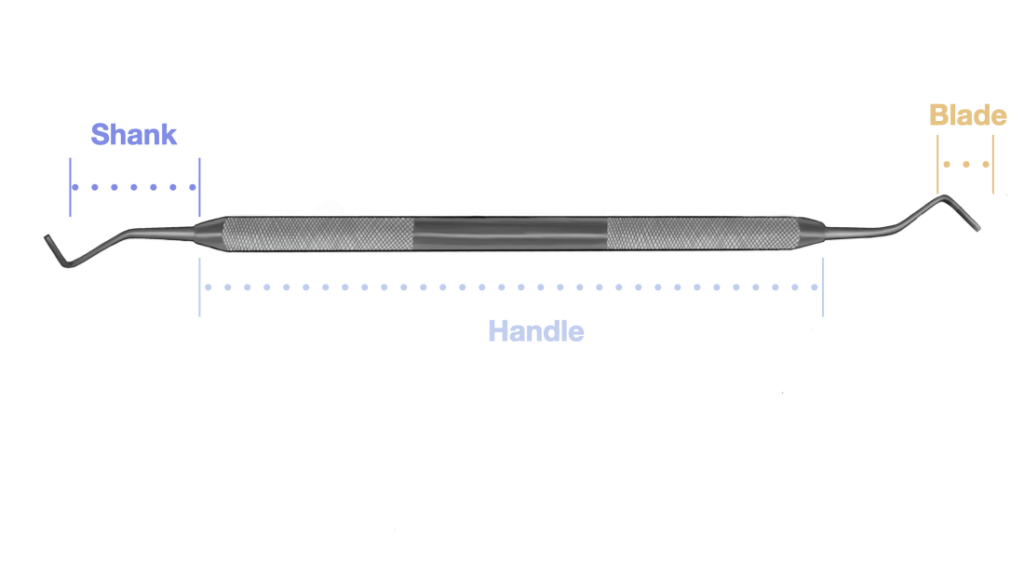
Basic
-
Mirror
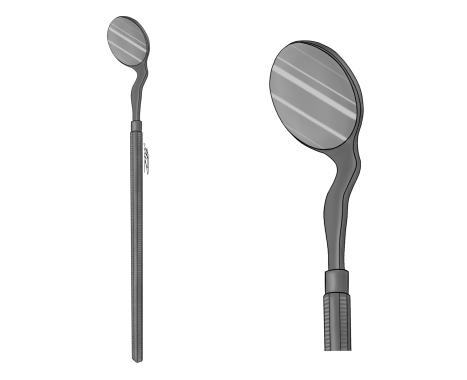
For visualization, retraction.
-
Explorer
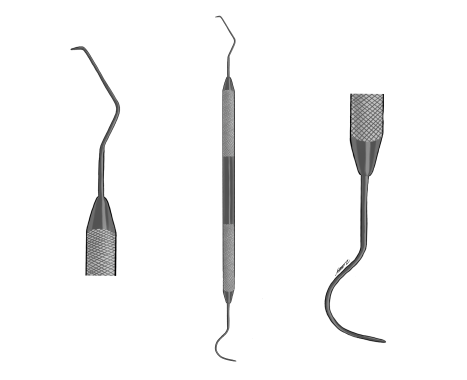
To determine the integrity of the tooth surface and feel for irregularities.
-
Hemostat
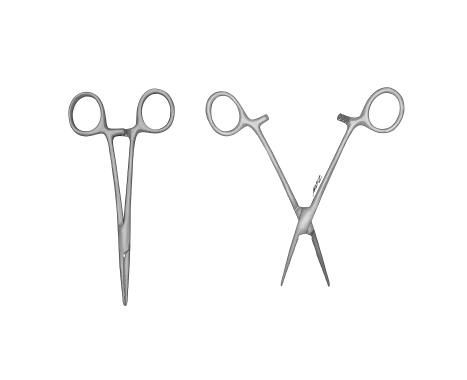
A type of forceps that locks tightly. To carry or hold objects.
-
Forceps
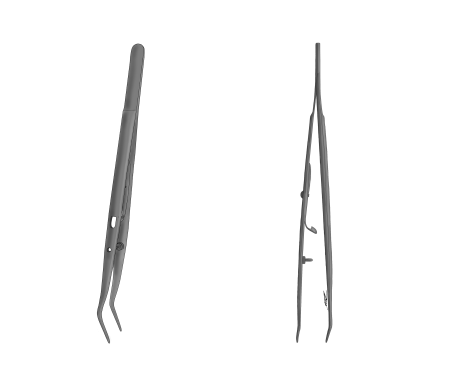
For grasping small objects, such as a cotton pellet, and carrying them to the mouth.
-
Williams Periodontal Probe
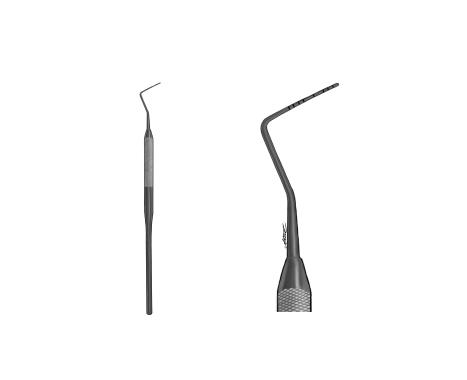
For measuring probing depths. Also useful for measuring depths of restorations, sizes of lesions, etc.
Chisels
-
Wedelstaedt Chisel
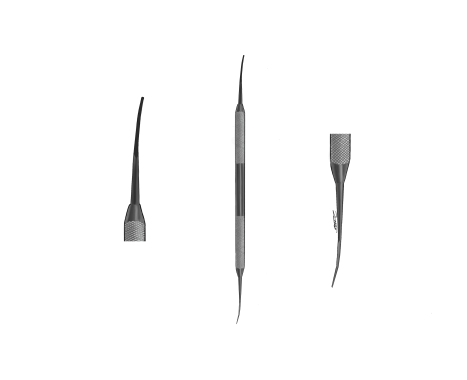
Blade is slightly angled from the handle of the instrument. A cutting instrument.
-
Binangle Hachet
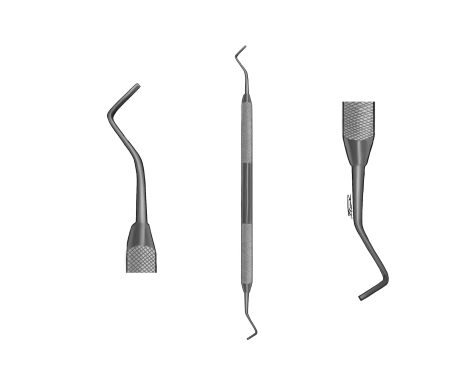
A cutting instrument. Has left and right cutting ends.
-
Gingival Margin Trimmer
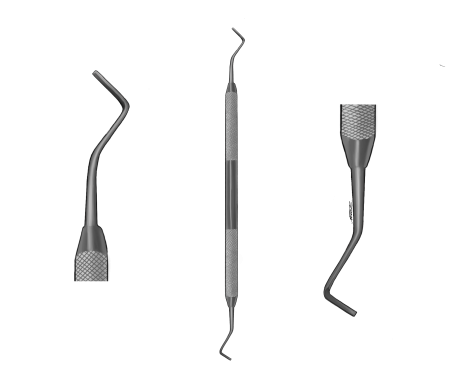
A cutting instrument. Come in pairs. Is similar to an enamel hatchet, but with a slightly curved blade. The outside of the curve contains the bevel for the cutting edge.
Excavators
-
Spoon Excavator
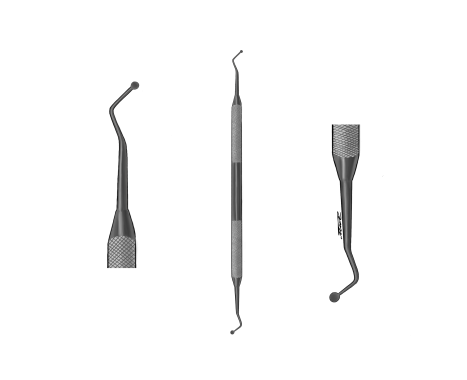
To remove carious dentin during tooth preparation. The ends have different size spoons.
Pulpal Protection
-
Calcium Hydroxide Base/ Liner Applicator
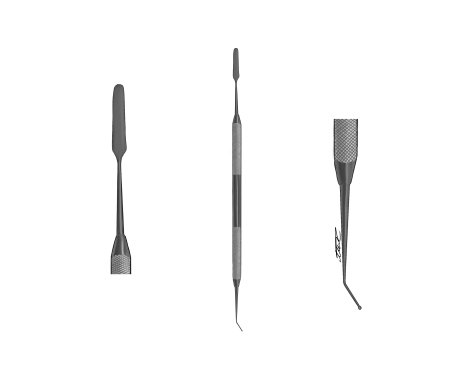
For mixing and placement of calcium hydroxide pulpal protection agent for indirect or direct pulp capping.
Matrix Holder
-
Tofflemire Holder
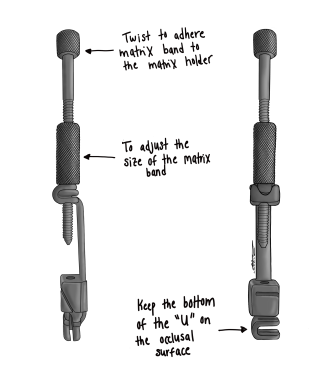
For placement of a Tofflemire Matrix Band.
Carriers
-
Amalgam Carrier
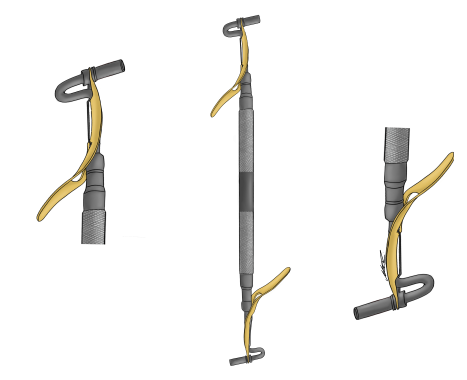
To carry triturated amalgam to the preparation.
Condensers
-
Small Condenser
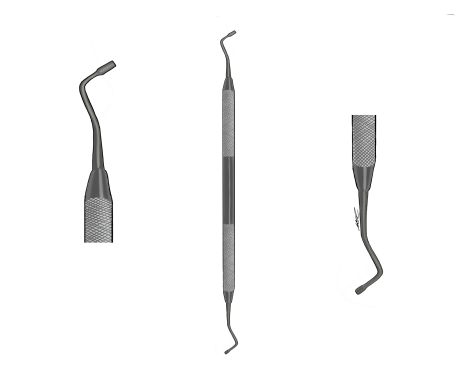
To pack amalgam into the preparation. Used before the large condenser.
-
Large Condenser
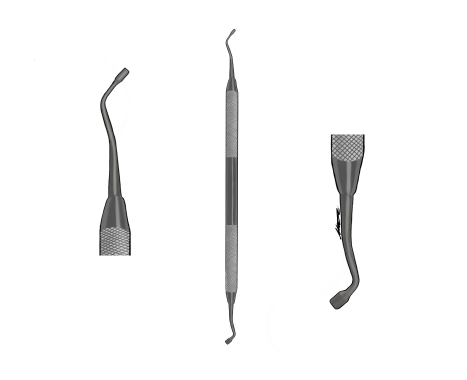
To pack amalgam into the preparation. Used after the small condenser.
Burnishers
-
Larger Ball Burnisher
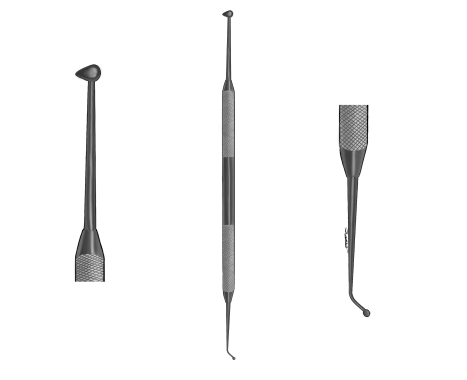
To burnish the surface and margins of an amalgam restoration after its placement. Can also shape matrix bands.
-
Acorn Burnisher
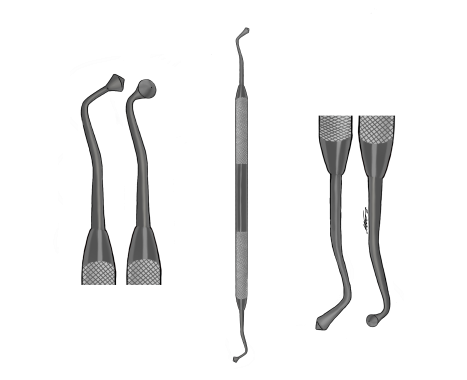
To burnish the surface and margins of an amalgam restoration after its placement.To form primary anatomy.
-
Ball Burnisher
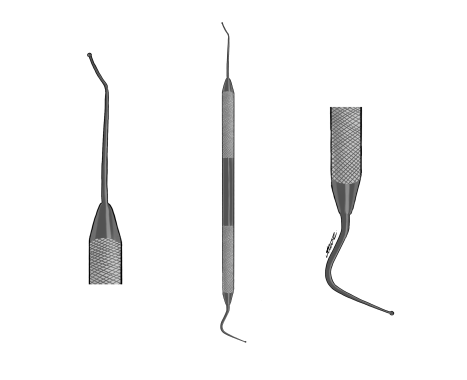
To burnish the surface and margins of an amalgam restoration after its placement.To form primary anatomy.
Carvers
-
Small Cleoid-Discoid Carver
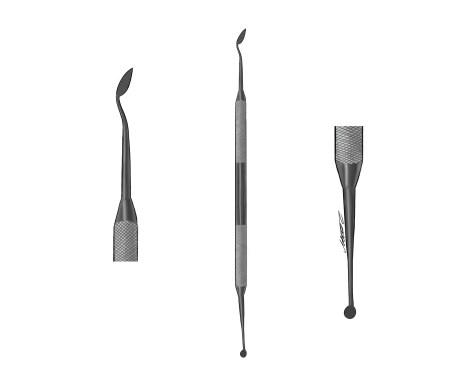
To remove excess amalgam and to carve or shape anatomy on occlusal surfaces.
-
Large Cleoid- Discoid Carver
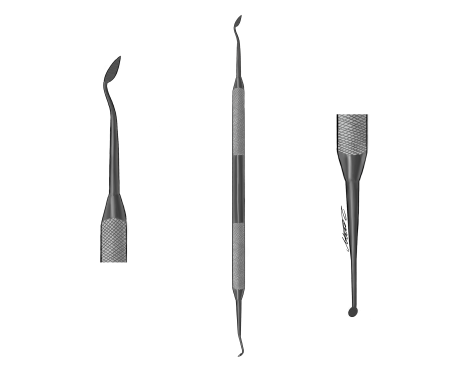
To remove excess amalgam and to carve or shape anatomy on occlusal surfaces.
-
Hollenback Carver
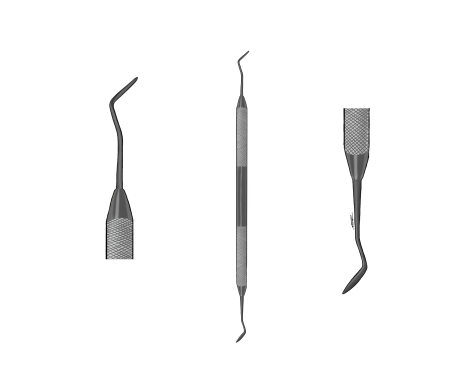
To remove excess amalgam and to carve occlusal, axial, and proximal surfaces of amalgam restorations.
Occlusion
-
Articulating Paper Holder
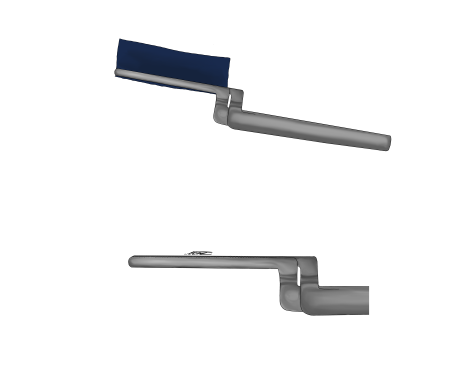
Holds articulating paper to check occlusion.
References
Hilton, T. J., Ferracane, J. L., & Broome, J. C. (2013). Summitt’s fundamentals of operative dentistry a contemporary approach.
Congratulations
You’ve reached the end of this lesson
